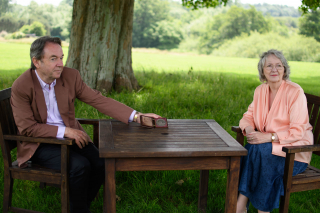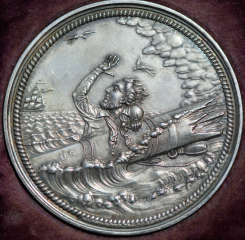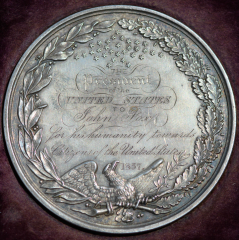On 21 June 2021 I received an email from the director of a UK BBC TV programme, Bargain Hunt. Just eight words into the email, half way through the first sentence, and I was wondering why on earth he was contacting me.
For the uninitiated, Bargain Hunt is a popular antiques programme which has been going since 2000. Members of the public compete in two teams, two members in each team. Each team is given a set amount of money to spend at an antiques fair or centre and they have just one hour to choose three items at a price which they think will make a profit when put into an upcoming auction. They are filmed making their choices and explaining why they think they’ll make a profit. And then the auction is filmed with the teams watching, with mixed emotions as their items either make a profit or a loss. Of course, each team wants to make the greatest profit.
So, as I know nothing about antiques, I wondered quite how I would fit into this programme. Time to finish reading the rest of the email. I hadn’t watched the programme for many years and I had forgotten that between the choosing of the items and the actual auction, the presenter visits a place of historical interest or talks to people about an interesting historical event or item.
One of the items in an auction to be held on Saturday 3 July 2021 was one of the medals issued to the rescuers of the crew of the American sailing ship Northern Belle in 1857 off the Margate coast.
Shipwreck of the ‘Northern Belle’ and the loss of the ‘Victory’
The director wrote: “Our team are working with the auction house selling the medal but what I’m really after is someone who knows the story and can tell it to our presenter on camera. I never expected to find someone who has a family connection to the brave individuals that rescued those aboard the ship, but I believe you do?”
Oh yes, I most certainly do! Six Emptages took part in the rescue: my great great grandfather Alfred, his brothers George, Charles and Edward, his uncle William and his cousin John.
Then the director asked if this was an idea that I’d be open to.
To tell the story of the rescue of the Northern Belle and the loss of the crew of the lugger Victory? To a wider audience? Oh yes, definitely!
On the internet there is a lot of mis or half information about what happened during this event and I wanted to be sure to do justice to all those who took part in the rescue and so I began my ‘homework’, to make sure I had the story at my finger tips.
Of course, being a female, I was also wondering what to wear and whether I could get an appointment with my hairdresser in time. The director’s name is Rhys, which also happens to be the name of my hairdresser, which led to a bit of mis communication on the phone when my partner David told me that Rhys was on the phone.
I asked Rhys the director what name was inscribed on the medal so that I could research him. It was John Fox but Rhys was more interested in my family connection. The filming was to take place Friday 2nd July, the day before the auction, and would be inserted into the programme when it was edited.
It was to be filmed at a hotel about 120 miles from my home and Rhys offered to put David and me up in the hotel overnight so that I would be ready to film at 9.30 on the Friday morning. The film crew: Rhys, two cameramen, a sound man and a researcher, were also staying at the hotel and we were able to say hello on Thursday evening after dinner in the restaurant. They were a very pleasant crew and helped to make the whole process a lot less nerve racking than it might have been. David has a keen interest in video and sound recording and they were happy to let him watch proceedings and to answer his questions.
As it was nice weather, we filmed outside in the hotel grounds. The programme presenter was Eric Knowles, one of the UK’s antique experts and he was also very pleasant, chatting to me and putting me at ease during the interruptions in the filming process. It lasted from 9.30 to 12 noon but there were several interruptions due to the sound of small planes flying nearby, police, ambulance or fire service sirens, people walking across the grounds in the distance and the raucous sound of the peacock strolling in the grounds.
Of course, although we were being filmed by two camera men, Eric and I had to ignore the cameras and just look as though we were enjoying a quiet chat together. The pandemic required that social distancing was in operation, so we sat either side of a table. However, we were under a large tree and periodically had to reach over and brush a variety of insects off each other. Following one of the interruptions, when filming restarted, the cameramen who was directly in my view said that I was looking at him. My reply was that I was looking at him because my mind had gone blank and I’d forgotten what point in the story we were up to. Duly reminded, we started off again.
I had typed up the whole story and sent it to Rhys so that the introduction and any voice overs would be correct. And I had printed it off, in a large print, so that, if necessary, I could just glance at it to remind myself of something. The large print was useful as I had the notes on the ground beside my chair, out of sight of the camera, and during the interruptions I could just peer over the edge of the chair to read the notes from a distance.
I was asked if I knew what had happened to the medals, were they still within the families? I replied that I knew that Alfred’s was in a museum in New York and my expression seems to suggest that I didn’t think much of that idea though actually I am happy that it is being kept safe and secure. I assume it found its way there as Alfred’s son emigrated to the USA, becoming a Vice President of the Metropolitan Life Insurance Company in New York. I knew that his great grandson David Emptage had contacted the museum when he found out about it but they refused to sell it to him.
I had asked if I would get to see John Fox’s medal but they didn’t have it when filming began and I didn’t see the auctioneer arrive with it or Rhys secretly passing it to Eric Knowles when he called Eric to one side as I was checking my notes at that moment. As the filming drew to a close, Eric Knowles produced the medal in its original presentation case from his pocket. I surprised myself by how emotional I became.
After filming had finished, David was able to take photographs. Click on them to see the photographs in full size.
I had alerted both Tim Emptage and Ray Emptage to the auction of the medal on the Saturday and we were able to watched it on the live feed. It attracted worldwide attention and, with a starting bid of £4000, it achieved a final price of £7200. An incredible amount.
I knew that the programme segment would be just 5 minutes long and couldn’t quite see how Rhys would edit such a long filming session down to five minutes and in an email in July, Rhys wrote: “Thanks also for the details included in your last email. I’m starting the edit in a few weeks so all that information is really helpful. The only issue I can see on the horizon is getting it down to time, inevitably I’ll have to leave out some parts of our chat that I really like, but that’s always the case when the entire film needs to be around 5 minutes. I hope you don’t find it too brief and please know I’ll fight to keep in as much as I can – I love the story!”
In the end, because the segment included the filming of the medal auction, a lot of what I said had to be edited out to fit the time frame and the perfectionist in me wishes that some of the other facts had been included but I understand the time constraints and am happy with the final cut. With the introduction and the setting of the scene, various views of a sailing ship in a storm, plus the pictures which I’d provided, I think Rhys pulled it all together well and made an interesting segment but I might be somewhat biased as it is all about part of the Emptage maritime history.
I was asked not to write about the programme on the website until it was broadcast and was warned that there would be a delay between the filming and the programme being broadcast and indeed there was. If it wasn’t for the photos that David took with Eric, the medal and me, I would have thought I’d dreamt the whole episode. It was broadcast on Friday 25 February 2022 and is available on BBC iPlayer for 11 months. Look for: Bargain Hunt, Series 60, Detling 20.
https://www.bbc.co.uk/iplayer/episode/m0014sj4/bargain-hunt-series-60-detling-20
See the introduction and then, if you don’t want to watch the whole programme, fast forward to 22.58 minutes. I hope those of you able to get iPlayer enjoy the programme.
It was talking about the Northern Belle that made me resurrect the plans for the book and I started writing it the following week.
An unforeseen consequence of the broadcasting of the programme is that, having seen it, a lady named Jill got in touch with me. When watching the programme though not paying it much attention, she had pricked up her ears at my mention of the name Emptage, her mother’s surname. Having watched it again the next day, Jill found the website and discovered that her cousin, Andrew Emptage, is one of the research team. They share their grandfather, Ernest Emptage. Jill has fond memories of time spent with Andrew and his family and she is now in contact with Andrew again.
It was not only Jill who found the website. On the day that the programme was broadcast, the website statistics tell us that there were 117 visitors to the website. There have been more since then. 80 of the visitors were looking at the article on the Northern Belle. Incredible! I’m not complaining.
I wrote to Rhys to thank him for the excellent job that he had made of the segment and that I held him responsible for the fact that we’re now writing the book. He replied saying “it’s great to read that you found the item satisfactory. We both know it’s a story that deserves a full documentary, and I’m hopeful that one day it will get it, but I’m glad you felt that [what] we covered in the time afforded was worth it. It really is an amazing story and I have to say my boss (the exec producer) was also really taken with the film. I’d really like to know how you get on with the book…”
My great great grandfather Alfred Emptage, aged 25, was one of the five men put on board the Northern Belle to help the crew and wait out the night with them. John Fox, whose medal we were looking at, was another one of those on board the ship that dreadful night.
John Fox was the son of a mariner and would have grown up with knowledge and experience of the sea. However, in January 1857 he was barely 19, if that. Although he was so young when he took part in the rescue of the crew of the Northern Belle, John’s experience didn’t put him off as he went on to be a mariner and a lifeboat man. Thirty one years after the rescue of the crew of the Northern Belle, in 1888, John’s daughter Ellen married Clifford Herbert Emptage, a plumber, son of Daniel Emptage.
The medal reads: “The President of the United States to John Fox for his humanity towards Citizens of the United States 1857.”
None of the men who took part in the rescue did so with thoughts of glory or reward in their mind. They were mariners. They lived by the sea, from the sea. It was second nature to go to sea to help when others were in distress even though they knew of the risk to their own lives.
Because of the incredibly brave actions of Alfred Emptage, John Fox and the other men from Margate and Broadstairs who took part in the rescue attempts, all the crew of the Northern Belle were saved but at great cost. In those terrible conditions in January 1857 nine Margate men lost their lives when their lugger Victory was swamped by the heavy seas and the men drowned. We must never forget them.


